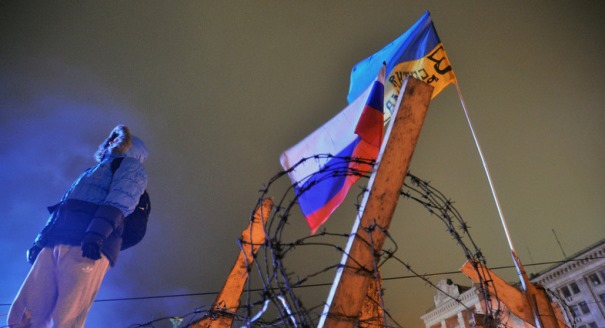Having observed the Russian regime for a long time, I finally decided to refer to Leon Festinger’s theory of cognitive dissonance. He describes the mental stress and discomfort experienced by an individual who holds two or more contradictory beliefs, ideas, or values at the same time.
I believe that the theory aptly describes the current policies and pronouncements of the Russian regime, which is simultaneously making conflicting statements and moving in opposite directions. Let me illustrate my point with some comments on the recent Kommersant article written by the Russian Foreign Minister Sergey Lavrov. The article, published on February 13, 2014, is titled “As the EU and the United States See It, the ‘Free’ Choice Has Already Been Made for the Ukrainians.” Many interpreted the article as Russia’s ultimatum to the West to leave Ukraine alone.
Let us find some instances of cognitive dissonance in the article. In the very beginning, Lavrov expresses satisfaction with the fact that “principles of democracy and market economics have become generally acceptable in the entire Euro-Atlantic space.” On the other hand, both Lavrov and President Vladimir Putin constantly allude to the decline of Euro-Atlantic nations and the uniqueness of the Russian civilization-state and talk of Russia becoming the beacon of traditional values. This means that the Kremlin excludes itself from the Euro-Atlantic space. In this case it is unclear how these two views can be reconciled? Or, perhaps, Lavrov’s article means that the Kremlin revised its views on values and decided to remain in this space. Why then all the hysterics around Ukraine’s European choice? Why can’t Ukrainians be where everyone else wants to be without asking Russia for its consent?
Sergey Lavrov talks about “respecting Ukraine’s freedom of choice.” But, for some reason, he thinks that the Ukrainians that seek to become part of Europe do not have a right to make this choice, and the demands of the Ukrainian Maidan “cannot be called acceptable (!).” Then, the Russian regime reserves a right to decide what is acceptable for Ukraine what is not. How is that reconciled with the “freedom of choice?”
Lavrov accuses the West of “social engineering” in Ukraine and even in “export of revolutions,” comparing the situation in that country to that of Iraq, Afghanistan, and Libya. However, all we have seen so far is the activism of the pro-Russian lobby and the attempts by Western leaders to distance themselves from the events in Ukraine.
The most intriguing and quite a daring proposition coming from the Russian foreign minister suggests that “value landmarks should be a product of mutual consent.” He thus urges the West and Russia to sit down at the negotiating table and agree on “value landmarks,” that is on normative principles (!). But how can the states that are built on the supremacy of the rule of law and the state that reasserts the supremacy of the executive power over the rule of law find common values? That is only possible if the West renounces its fundamental civilizational principles…
Leon Festinger wrote that in the case of cognitive dissonance, an individual is trying to narrow the gap between his conflicting aspirations, trying to reach consonance between them. The Russian regime is decimating the Festinger principle and is actually widening cognitive dissonance between its ideas, which may have breathtaking political consequences.





